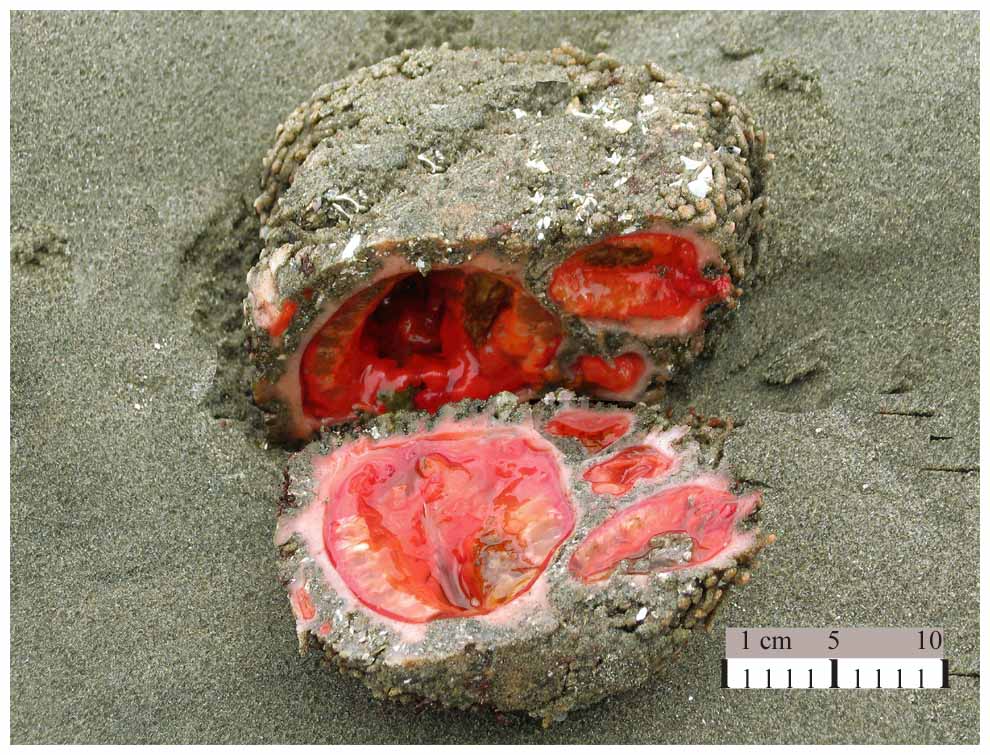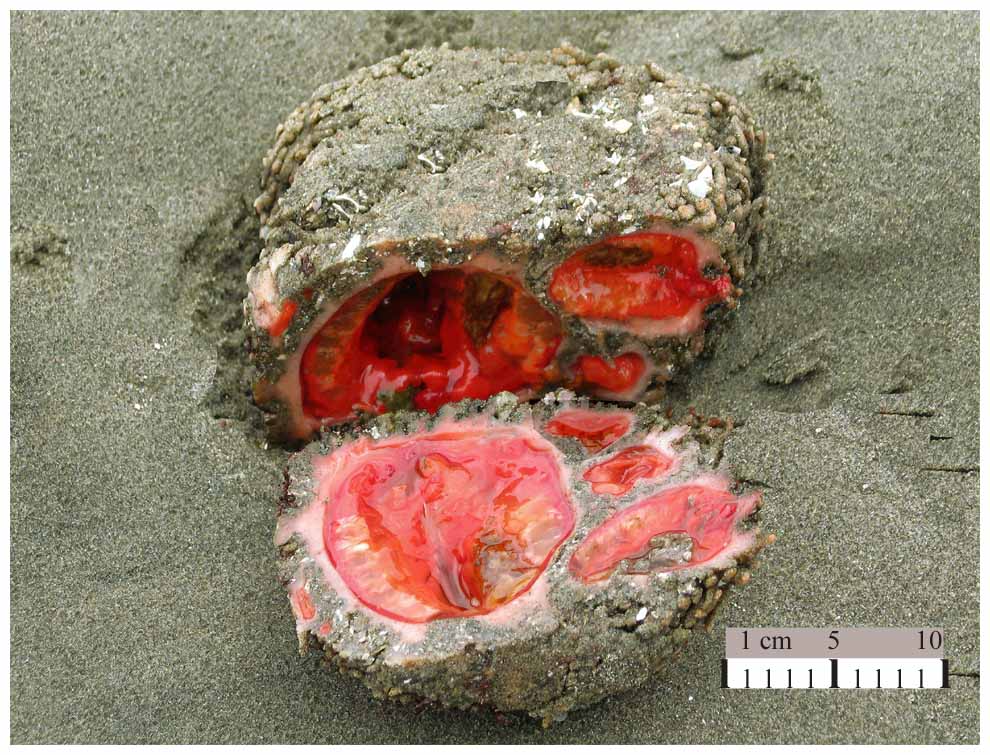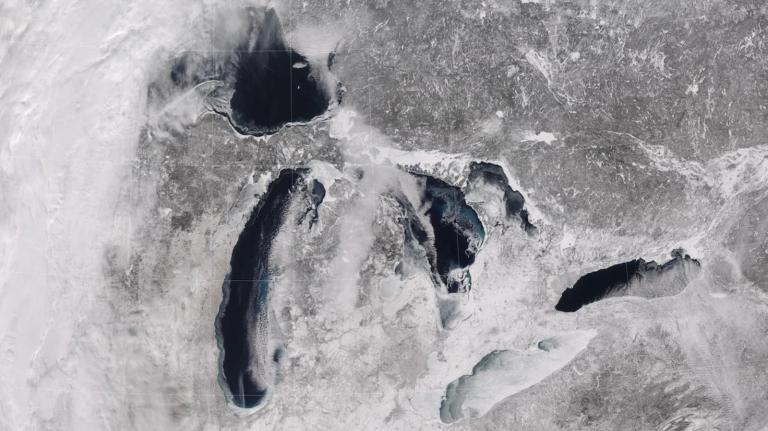
The fact that this sea creature looks exactly like a rock with guts is not even the weirdest thing about it. It’s also completely immobile like a rock — it eats by sucking in water and filtering out microorganisms — and its clear blood mysteriously secretes a rare element called vanadium. Also, it’s born male, becomes hermaphroditic at puberty, and reproduces by tossing clouds of sperm and eggs into the surrounding water and hoping they knock together. Nature, you are CRAZY.
Self-sexing vanadium-secreting intestine-rock thing is actually called Pyura chilensis (terser, though less descriptive), and it’s found off the coast of Chile and Peru. Locals eat it raw or in stews, and non-locals describe the taste as “bitter” and “soapy” with a “weird iodine flavor.” Sort of what you’d expect from a meat-rock, I guess? Maybe that’s the vanadium, which is also found in crude oil and tar sands — creatures like P. chilensis can have up to 10 million times more vanadium in their bodies than is found in the surrounding water, for no obvious reason.
Scientific American has more about P. chilensis, including its weird reproduction, which carries the charming euphemism of “selfing”:
P. chilensis can often be found in densely packed aggregations of thousands or small handfuls of just a few, or they can be found on their own — in which case they must reproduce asexually, as there is no way of them moving to find a mate. This means P. chilensis is hermaphroditic, with the gonads of both a male and a female that can release eggs and sperm simultaneously to meet as a fertile cloud in the surrounding water. If the sperm-egg collisions are successful, they will produce tiny tadpole-like offspring that will eventually settle onto a rock to grow into the adult form.
I don’t know about you, but I’m going to be looking more carefully at rocks in the future. Also possibly trees and dirt. Who knows what apparently inanimate objects might be filled with innards and holding perverse “selfing” orgies right in front of our noses? Thanks for keeping us on our toes, nature.



